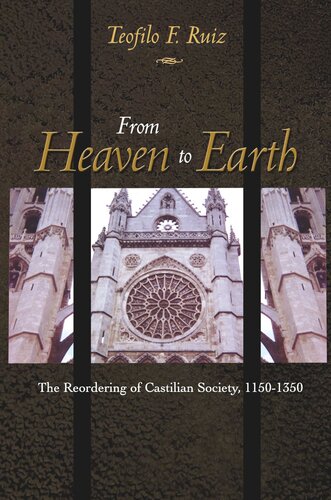

Most ebook files are in PDF format, so you can easily read them using various software such as Foxit Reader or directly on the Google Chrome browser.
Some ebook files are released by publishers in other formats such as .awz, .mobi, .epub, .fb2, etc. You may need to install specific software to read these formats on mobile/PC, such as Calibre.
Please read the tutorial at this link: https://ebookbell.com/faq
We offer FREE conversion to the popular formats you request; however, this may take some time. Therefore, right after payment, please email us, and we will try to provide the service as quickly as possible.
For some exceptional file formats or broken links (if any), please refrain from opening any disputes. Instead, email us first, and we will try to assist within a maximum of 6 hours.
EbookBell Team

4.4
52 reviewsBetween the late twelfth century and the mid fourteenth, Castile saw a reordering of mental, spiritual, and physical space. Fresh ideas about sin and intercession coincided with new ways of representing the self and emerging perceptions of property as tangible. This radical shift in values or mentalités was most evident among certain social groups, including mercantile elites, affluent farmers, lower nobility, clerics, and literary figures--"middling sorts" whose outlooks and values were fast becoming normative.
Drawing on such primary documents as wills, legal codes, land transactions, litigation records, chronicles, and literary works, Teofilo Ruiz documents the transformation in how medieval Castilians thought about property and family at a time when economic innovations and an emerging mercantile sensibility were eroding the traditional relation between the two. He also identifies changes in how Castilians conceived of and acted on salvation and in the ways they related to their local communities and an emerging nation-state.
Ruiz interprets this reordering of mental and physical landscapes as part of what Le Goff has described as a transition "from heaven to earth," from spiritual and religious beliefs to the quasi-secular pursuits of merchants and scholars. Examining how specific groups of Castilians began to itemize the physical world, Ruiz sketches their new ideas about salvation, property, and themselves--and places this transformation within the broader history of cultural and social change in the West.